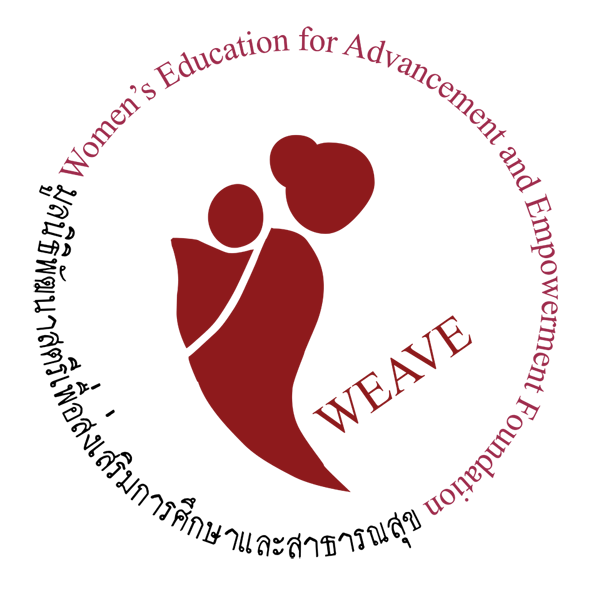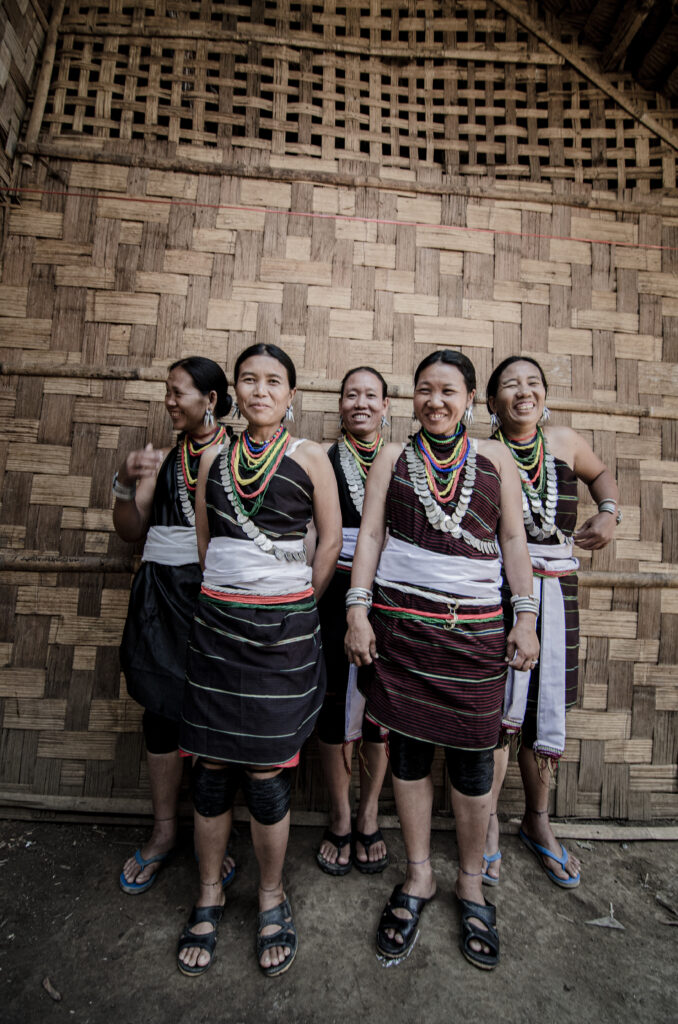Intangible cultural heritage is realized through indirect contacts and communication between individuals and communities. However, cultural homogenization brought on by globalization, climate change and the spread of global pandemic has put the physical presence of intangible cultural heritage on hold, the effects of which has been damaging enough to raise the risk of extinction in some case. The 2021 World Forum for Intangible Cultural Heritage was held from September 29 to October 1, 2021 and discussed significant intangible cultural heritage in the era of convergence and creativity. Ms. Mitos Urgel, CEO and PRESIDENT of WEAVE was one of the keynote speakers and spoke about WEAVE’s experience giving life as a Local Fair Trade for Creative Value of Intangible Cultural Heritage of the Karenni refugees on the Thai-Myanmar border.
Solidarity greetings to everyone! I am extremely honored to be part of this 2021 World Forum for Intangible Cultural Heritage. And to represent my organization WEAVE and share our work. On the theme of Local Fair Trade for Creative Value of Intangible Cultural Heritage, I want to share how our work towards increased accessibility, gender equity, relevance and quality of education and economic empowerment contributed to the creative value of the intangible cultural heritage of the indigenous communities of creative artisans – weavers, embroiderers, sewers on the Thai-Myanmar border.
For more than 20 years now, I work with WEAVE, a Foundation with a Fair Trade Enterprise subsidiary, that is a Guaranteed Fair Trade of the World Fair Trade Organization. WEAVE is an inspiring refugee-powered women’s organization founded in 1990 and is dedicated to saving lives, protecting rights, empowering and building strong, resilient and self-sustaining refugee and indigenous women and their communities.
The refugee crisis is one of the defining challenges of our time. Around the world, there are now over 82.4 million people displaced from their homes by violence, persecution, war and disaster. On the Thai-Myanmar alone, there are over 92,000 refugees displaced for more than 3 decades now and are left with uncertainty on what the future holds for them being stateless persons.
Refugees often leave their most valuable possessions and livelihoods in their home countries when fleeing war and violence. What they carry are their timeless traditions, skills, knowledge and craftsmanship, which they once used to earn a living. Upon arriving in host communities, refugees often find themselves exposed and vulnerable. As they do not have rights in a foreign land, they become particularly prone to exploitation and discrimination including in the labour market. Most often, they are subjected to restrictive regulations and are not allowed to work. Refugees face great challenges in generating opportunities and in rebuilding their lives with dignity.
Yet there is hope. WEAVE works in collaboration with appropriate stakeholders through multisector (private and public) ecosystems approach to support inclusion of refugees in the recovery, development efforts and global economy which we found amongst the most powerful and lasting solutions available.
WEAVE’s projects offer innovative solutions to address the priorities within the framework of three goals: humanitarian, development (education for all) and women’s economic empowerment through Fair Trade. WEAVE is dedicated to gender equality and the empowerment of women and their communities through education and support community initiatives that protects and promote status of women. It believes that educating them is the single most effective means of reducing poverty and key to their empowerment. Applying the social enterprise model with Fair Trade at the heart of the business is the key. This has been the inspiration and concentration of WEAVE since its inception more than 25 years ago.
From the time-honored tradition, indigenous knowledge, practices and artisanal craftwomanship of the Karenni, WEAVE facilitates ways and means for the refugee women to express, promote and sustain artistic traditions and preserve their intangible cultural heritage. Senior women passed on the indigenous weaving discipline and practices to younger women.
Through WEAVE Fair Trade, the artisanal skills of women are harnessed to participate in global economy, a critical means that enables them to add value to their host communities and to secure their future.
WEAVE products are not just beautifully and lovingly handcrafted by the artisans. There is a healing power in these processes which radiates and displays the real essence of humanity. The products give a compelling narrative and significant story of overcoming and how refugees and indigenous women can rebuild their future, and in so doing, act as significant and powerful contributors to the world economy.
The Fair Trade mission primacy model showed some distinct features that contrast with the mainstream model of business and trade. For instance, it exhibits the following characteristics:
- 92% reinvest all profits in their social mission;
- 52% are led by women;
- 4 times less likely to go bankrupt; and
- 85% of the FTEs report actively sacrificing financial goals to pursue social or environmental goals, while retaining commercial viability.
WEAVE as Guarantee Fair Trade ensures that its enterprise is truly mission-led and that it works and adheres to Fair Trade standards (fair wage payments, decent working conditions, addresses environmental concerns, among others). The Fair Trade 10 Principles are designed to deal with harsh environments where power disparities and marginalization make mainstream business and trade unable to empower and support vulnerable artisans. By practicing Fair Trade to the refugee context, WEAVE ensures that it offers protection to refugees while also encouraging safe and fair livelihood opportunities.
The Fair Trade work of WEAVE is a living example of how the implementation of the 10 Fair Trade Principles can truly cement opportunities for refugees to become self-reliant and uplift their households and communities with their work and expertise in accordance to their intangible cultural heritage. From providing refugee women living in conflict situations to improving the life of their families one embroidery at a time to preserving their time-honored cultural heritage through their handcrafted products inspired in the mountains in their home country, WEAVE bring together an enchanting collection where the artisanal skills and self-development of refugees play a central role.
I hope that I have enlightened you about our work. I strongly believe that we are part of a proof of concept that a better way of addressing refugee concerns through education and Fair Trade is possible. This is our story at WEAVE. We hope to inspire a broader transformation.

